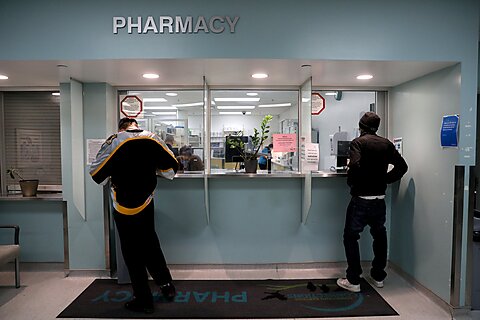
Jeffrey A. Singer
September is National Recovery Month. Begun in 1989, this national observance occurs every September “to promote and support new evidence‐based treatment and recovery practices.” This provides a perfect opportunity to release a new Cato policy analysis, “Expand Access to Methadone Treatment: Remove Barriers to Primary Care Practitioners Prescribing Methadone,” that I co‐authored with Sofia Hamilton, a research associate in health policy studies.
The National Center for Health Statistics reported that more than 107,000 people died from drug overdose deaths in 2021. More than three‐quarters of overdose deaths involved opioids. Recent research estimates the number of adults with opioid use disorder (OUD) ranging from 6.7 million to 7.6 million. These estimates suggest one to two of every 100 U.S. residents have OUD.
Researchers at the University of Pittsburgh School of Public Health published a study in 2018 that shows the overdose rate has been on an exponential growth trend since at least 1979 and shows no signs of slowing. Different drugs have predominated at various times over the decades, but the trend has been relentless.
A Joint Economic Committee of Congress report shows that overdoses began rising in 1959. There is good reason to believe that sociocultural and psychosocial dynamics are at play, as many people are choosing to use potentially dangerous drugs nonmedically—recreationally or for self‐medication.
Expanding access to OUD treatment would reduce the number of people who seek drugs in the dangerous black market and, in turn, reduce the risk and incidence of overdose deaths.
Federal law requires people to seek treatment for opioid use disorder from Opioid Treatment Programs, or OTPs, approved by the Drug Enforcement Administration and regulated by the Substance Abuse and Mental Health Services Administration. Our paper details the burdensome requirements and restrictions these federal agencies place on OTPs and patients.
Adding to the problem, states impose their own restrictions and regulations on OTPs. Some impose certificates on need requirements, some cap the number of OTPs, and some have imposed moratoria on new OTPs. NIMBYism by residents plays a significant role as well. Some states also impose additional restrictions on OTPs dispensing take‐home methadone and other clinical practices that go beyond SAMHSA’s requirements.
Federal and state restrictions are why there are not nearly enough OTPs to serve the population with OUD. Only about 400,000 people with OUD received methadone treatment in 2019, while 1.6 million U.S. residents reported they developed OUD that year.
Our paper examines the approaches to methadone treatment that have been the norm in the U.K., Canada, and Australia for more than 50 years. In those countries, primary care providers treat OUD with methadone, often coordinating with local pharmacies. Government regulators allow practitioners much more leeway to use their clinical judgment and knowledge of their patients in their treatment protocols. This has vastly expanded access to methadone treatment in those countries.
The paper reviews the experiences of pilot programs in the U.S. that allow primary care practitioners to provide methadone treatment in the office setting, as well as the results of a COVID pandemic‐induced pilot program that temporarily relaxed restrictions on take‐home methadone.
We conclude that lawmakers in the U.S. should reform laws on the federal and state levels to allow primary care clinicians to engage in methadone treatment in the office setting. This would not only expand access to treatment, but by treating people with OUD in the office setting—as we treat people with other physical and mental health disorders—we remove the stigma and dehumanization of people with OUD.
In recognition of National Recovery Month, in addition to the release of our policy analysis, I will moderate a policy forum in Cato’s Hayek Auditorium on September 13 on “Expanding Access to Methadone Treatment” from 11:00 AM to 12:30 Eastern Time, where we will explore ways to improve access to this proven treatment.
The event will feature Rep. David W. Norcross (D‑NJ), principal sponsor of the Modernizing Opioid Treatment Access Act (MOTAA) in the U.S. House of Representatives (the first serious effort to reform federal methadone treatment law in decades), Jeffrey H. Samet, MD, MPH (Professor at Boston University School of Medicine and Boston University School of Public Health), and Helen Redmond, a journalist, filmmaker, addiction treatment expert, and adjunct faculty at New York University School of Social Work.
You can register here to attend the event in person or watch it online.








